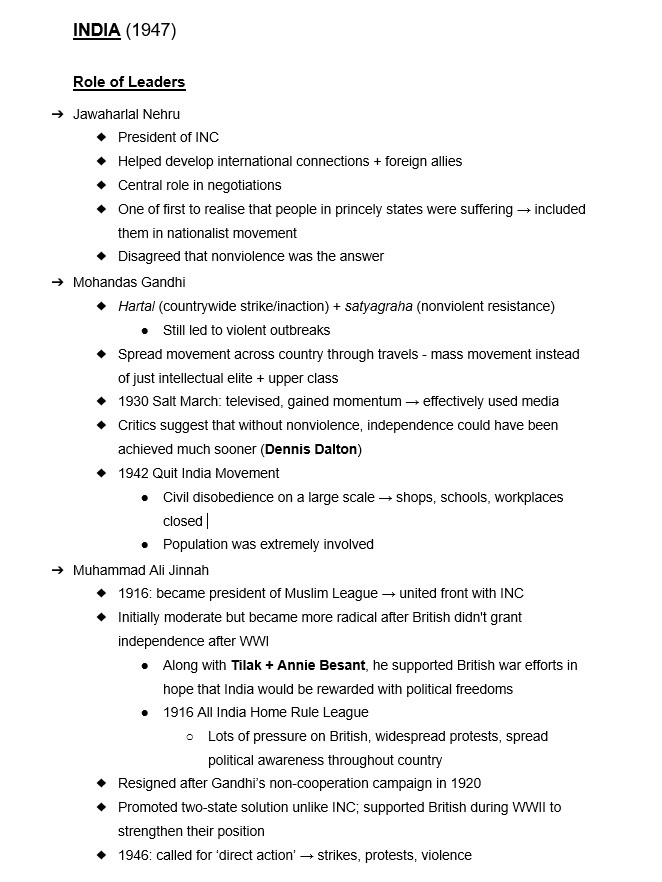IB History Essay on Decolonization in India and Ghana
Summary:
This IB History Essay examines Decolonization in India and Ghana. In India, leaders like Nehru, Gandhi, Jinnah, Patel, and Bose played crucial roles, as did the impacts of World War I and II, economic challenges, and factors such as population growth, industrialization, and urbanization. Key British government figures and policies are also covered. Nationalism grew in India due to British influence, key leaders like Tilak, and the formation of the INC and Muslim League. In the decade after independence, India saw mixed economic results, political achievements and challenges, and some successes in social policies. In Ghana, leaders like Nkrumah and Danquah, as well as pan-Africanists like Garvey and Du Bois, contributed to the growth of nationalism. The impact of war, economic factors, and key events like the 1948 Accra riots shaped Ghana’s independence movement. Government figures such as Arden-Clarke, Burns, and Coussey introduced significant policies that led to self-rule and independence. Ten years later, Ghana faced economic and political challenges, including dependence on the West, infrastructure projects, and internal opposition.
Excerpt:
Decolonization in India and Ghana
INDIA (1947)
Role of Leaders
- Jawaharlal Nehru
- President of INC
- Helped develop international connections + foreign allies
- The central role in negotiations
- One of the first to realise that people in princely states were suffering → included them in the nationalist movement
- Disagreed that nonviolence was the answer
- Mohandas Gandhi
- Hartal (countrywide strike/inaction) + satyagraha (nonviolent resistance)
- This still led to violent outbreaks
- Spread movement across the country through travels – mass movement instead of just intellectual elite + upper class
- 1930 Salt March: televised, gained momentum → effectively used media
- Critics suggest that without nonviolence, independence could have been achieved much sooner (Dennis Dalton)
- 1942 Quit India Movement
- Civil disobedience on a large scale → shops, schools, and workplaces closed
- The population was extremely involved
- Hartal (countrywide strike/inaction) + satyagraha (nonviolent resistance)
- Muhammad Ali Jinnah
- 1916: became president of Muslim League → united front with INC
- Initially moderate but became more radical after the British didn’t grant independence after WWI
- Along with Tilak + Annie Besant, he supported British war efforts in hope that India would be rewarded with political freedoms
…


Reviews